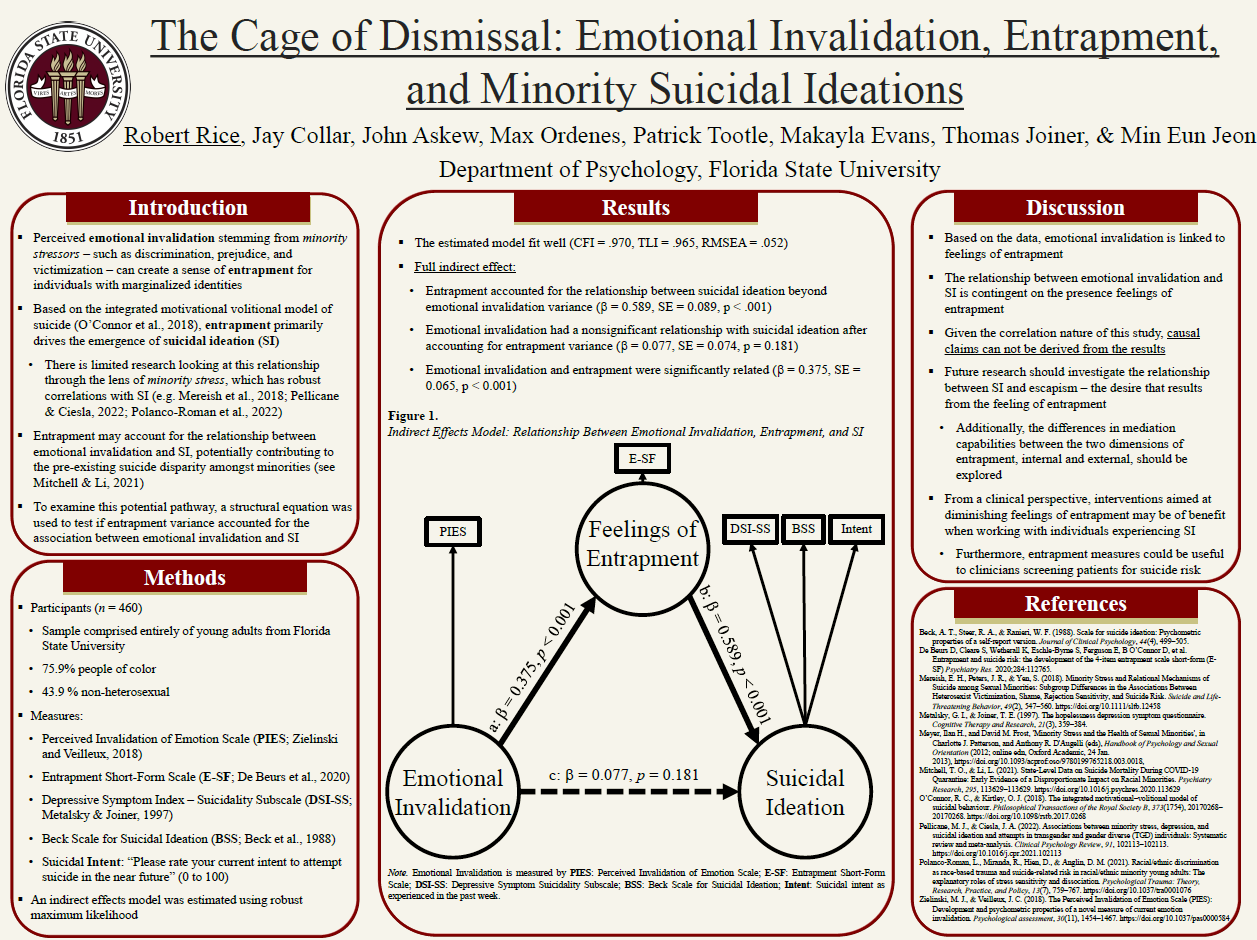Research Symposium
24th annual Undergraduate Research Symposium, April 3, 2024
Robert Rice Poster Session 3: 1:30 pm - 2:30 pm /382

BIO
Robert Rice is a sophomore at Florida State University studying Psychology and Sociology. After graduation, he intends to pursue a PhD in Clinical Psychology. His main research interests include escapism in relation to suicidality, the interplay between perceived burdensomeness and negative confirmation biases within internalizing disorders, and psychotherapeutic applications of psychedelics for traumatic experiences. Robert's ultimate goal, following his research career, is to transition to private practice as a cognitive behavioral therapist.
The Cage of Dismissal: Emotional Invalidation, Entrapment, and Minority Suicidal Ideations
Authors: Robert Rice, Min Eun JeonStudent Major: Psychology
Mentor: Min Eun Jeon
Mentor's Department: Psychology Mentor's College: Psychology Co-Presenters: n/a
Abstract
Minoritized populations are susceptible to emotional invalidation, which may explain their risk towards suicidal thoughts and behaviors. Based on theoretical and empirical works, entrapment may account for the relationship between emotional invalidation and suicidal ideation. To examine this potential pathway, an indirect effects model was estimated in a sample of minoritized individuals (n = 460), which had considerable diversity: 75.9% people of color; 43.9% non-heterosexual. A structural equation indirect effects model was estimated using robust maximum likelihood to test whether the association between emotional invalidation and suicidal ideation was accounted for by entrapment variance. All variables were modeled as latent variables; emotional invalidation and entrapment were modeled with the Perceived Invalidation of Emotion Scale and Entrapment Short-Form Scale, respectively. Suicidal ideation was modeled using sum scores of the Depressive Symptom Index – Suicidality Subscale, Beck Scale for Suicide Ideation, and a single-item measure of suicidal intent. The estimated model fit well (CFI = .970, TLI = .965, RMSEA = .052). Results showed that entrapment accounted for the relationship between suicidal ideation beyond emotional invalidation variance (b = 0.698, SE = 0.089, p < .001), while emotional invalidation had a nonsignificant relationship with suicidal ideation after accounting for entrapment variance (b = 0.098, SE = 0.074, p = 0.181), supporting a complete indirect effect. These findings show that invalidation may confer risk for suicidal ideation through feelings of entrapment; future research may benefit from further exploring this relationship, including cognitive and behavioral aspects of perceived lack of or desire for escape.
Keywords: suicide, escapism, minority stress, disparities in mental health


